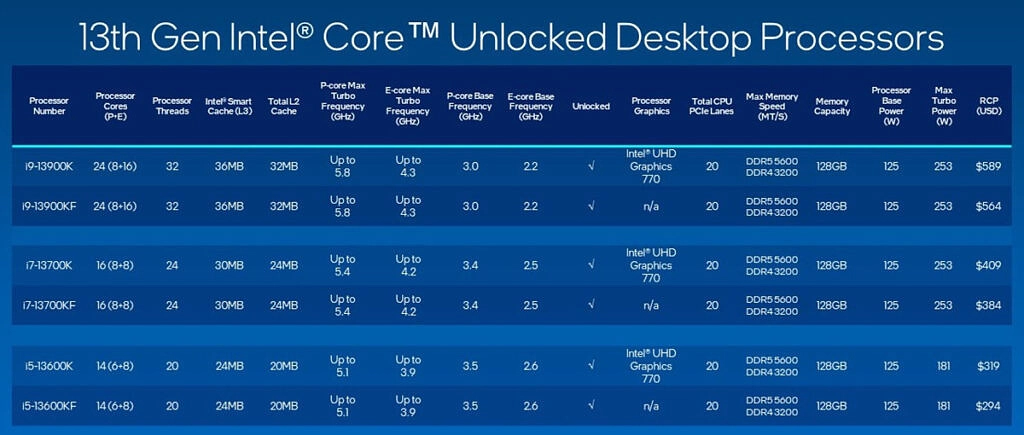The new i9-13900K is one of the 22 processors in Intel’s 13th generation of desktop processors, which was just released in India. The debut comes a few weeks after AMD unveiled its brand-new Ryzen 7000 series desktop processors, which will compete with Intel’s 13-Gen chips.

The new Intel Core i9 13900K CPU, which the manufacturer claims to be the fastest processor in the world, is the star of the lineup. With a max clock speed of 5.8GHz, the device contains 24 cores (8 Performance-cores + 16 Efficiency-cores), 32 threads, and is advertised as having the greatest gaming, streaming, and recording experiences. 32MB of L2 cache and 36MB of L3 cache are used to support these cores.
For PCs without installed discrete GPUs, it also has built-in Intel UHD Graphics 770. The i9-13900k boasts 15% greater single-threaded performance and up to 41% better multi-threaded performance than the previous generation’s top performer, the i9-12900k, according to Intel.
The 13th Gen Intel Core desktop family, according to Intel, includes over 125 partner system designs, enabling more platform compatibility. These include traditional, smaller systems with decreased sizes as well as full tower desktops with liquid cooling. All of these should provide good performance.
In addition, six of the 22 new processors are unlocked, enabling experienced users to overclock them to increase performance as needed. These include the i9-13900K described earlier as well as less expensive choices like the i5-13600KF.
The F-series processors are also available in the lineup, but they lack an integrated GPU and must be connected with a separate GPU in order to function.
In addition, the new CPUs are backwards compatible with motherboards using the Intel 600 or newer Intel 700 series chipsets and have full PCIe 5.0 functionality. The chips are a hybrid in terms of their backward and forward compatibility because they may be used with both DDR4 and DDR5 memories. When compared to AMD’s new Ryzen 7000 series chipsets, which only support DDR5 memory and require an AM5 slot motherboard update to be used, this is a significant benefit.
Although Intel has not officially disclosed the prices for any of the processors introduced today, we may expect official local prices to be revealed soon.

